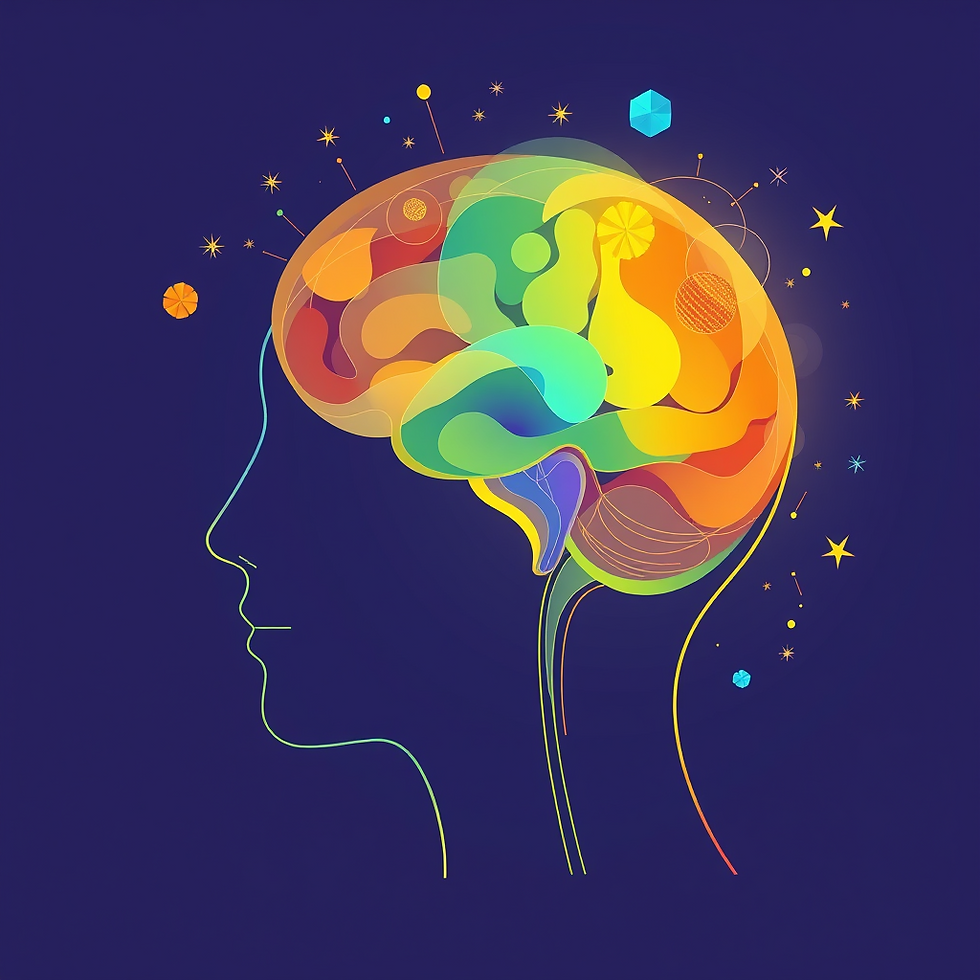🪁how mental health coaching can support grief, loss and trauma
- Kat Usop

- Apr 22, 2025
- 2 min read
Grief, loss, and trauma are deeply personal experiences that can disrupt every aspect of life—emotional, physical, social, and spiritual. While therapy remains essential for clinical interventions, mental health coaching can play a complementary role in helping individuals navigate these challenges by fostering resilience, empowerment, and forward momentum.
The Role of Mental Health Coaching in Grief and Trauma
Unlike traditional therapy, which often focuses on diagnosing and treating mental health conditions, coaching is action-oriented and future-focused. A mental health coach does not replace a therapist but can work alongside therapeutic interventions to:
✍️Provide a Safe, Non-Judgmental Space –
Coaching offers a structured yet flexible environment where individuals can explore their emotions without fear of judgment.
✍️Support Goal-Setting and Forward Movement –
Trauma and grief can leave individuals feeling stuck. Coaching helps clients identify small, manageable steps toward healing.
✍️Strengthen Coping Strategies –
Coaches help clients develop personalized tools for emotional regulation, self-care, and stress management.
✍️Encourage Self-Compassion and Empowerment–
Many people struggling with grief or trauma feel powerless. Coaching reinforces agency and self-worth.
Key Skills and Sensitivities for Coaches
Supporting individuals through grief and trauma requires specialized skills to ensure the coaching relationship is both effective and ethical:
1. Active Listening and Presence
Grief and trauma are not problems to be "fixed" but experiences to be witnessed. Coaches must listen deeply without rushing to offer solutions.
2. Trauma-Informed Awarenes
Understanding how trauma affects the brain and behavior helps coaches recognize triggers, avoid re-traumatization, and work within the client’s window of tolerance.
3. Boundaries and Scope of Practice
Coaches must know when to refer clients to licensed therapists, especially when dealing with severe PTSD, complex grief, or suicidal ideation.
4. Cultivating Resilience Without Bypassing Pain
Toxic positivity ("Just stay strong!") can be harmful. Effective coaches validate emotions while gently guiding clients toward growth.
5. Cultural and Spiritual Sensitivity
Grief and trauma are shaped by cultural, religious, and personal beliefs. Coaches should respect diverse mourning practices and worldviews.
6. Collaborative Approach with Therapists
- When a client is in therapy, coaches should (with permission) align strategies with therapeutic goals to ensure cohesive support.
Complementary Techniques in Coaching for Grief and Trauma
- Mindfulness & Grounding Exercises – Helps clients stay present when grief or trauma triggers overwhelm.
- Narrative Techniques – Encourages clients to reframe their stories in ways that honor their loss while fostering hope.
- Strengths-Based Coaching – Focuses on resilience and existing coping mechanisms rather than deficits.
- Somatic Awareness – Trauma lives in the body; breathwork and movement can help release stored tension.
Mental health coaching is not a substitute for therapy, but it can be a powerful ally in the healing journey. By combining empathy, trauma-informed practices, and a future-focused approach, coaches can help individuals navigate grief and trauma with greater self-awareness, resilience, and purpose.
For those considering coaching alongside therapy, finding a professional with specialized training in grief and trauma ensures the best support system for holistic healing.
Welcome to paradigm 🪁



Comments